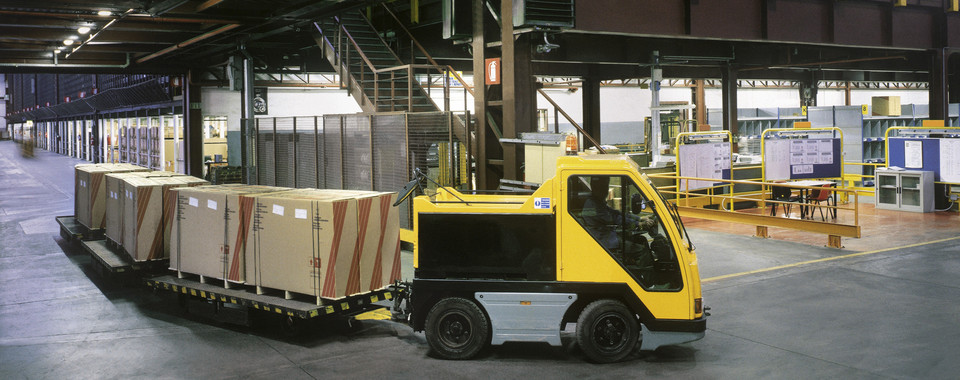
Apr 14, 2025 // Zdravka Ley
More than just in a circle: How tugger trains are changing internal logistics thanks to intelligent management
Why intelligent tugger train optimization is crucial.
Jan 6, 2025 Zdravka Ley
ShareLike every year, many people start the new year 2025 with good intentions: avoiding stress, spending more time with family and friends, doing more sport, eating healthily and living more sustainably - all of these goals once again top the list of resolutions (see survey of DAK - German health insurance company Nov 2024). But what about good intentions in intralogistics?
The year 2025 will continue to be characterized by digital transformation - also in intralogistics. Companies are required to replace their traditional processes with modern, digital solutions in order to operate more efficiently, flexibly and sustainably. Intralogistics management systems play a key role in this: they enable real-time control of internal processes and help to make optimum use of resources.
What good intentions do you have for digitalization of intralogistics in 2025? With modern technologies and clear strategies, the challenges of labor shortages, rising costs and the growing sustainability requirements can be successfully overcome.
The challenges in logistics remain, but also offer opportunities to drive innovation and actively shape change:
These goals are not mutually exclusive. Rather, they can be balanced through innovative approaches and the use of modern technologies. The intralogistics of the future is not only a challenge, but also an opportunity to grow sustainably and efficiently.
The digital transformation offers a wide range of opportunities to make logistics processes more efficient, sustainable and flexible. In particular, AI-supported IT systems that work in real time can help successfully master the various challenges in intralogistics, optimally utilize potential and adapt processes to the increasing requirements:
A cloud-based, standardized transport control system enables a quick and effective start to the digitalization of intralogistics. In addition to the central control of transport orders and real-time data transmission, the advantages of such solutions include high scalability and IT security without additional hardware, as well as easy access and low implementation costs.
One example of this is the SYNCROTESS intralogistics management system, which offers a quick and uncomplicated start with its cloud-based Premium standard edition, especially for medium-sized companies. The cloud solution enables flexible adaptation to company-specific requirements and ensures smooth operation and therefore a simple and cost-efficient entry into the digitalization of internal logistics processes.
The good intentions for intralogistics in 2025 require clear goals, the use of digital solutions and continuous optimization. Intelligent software and cloud technologies help companies to increase delivery reliability, efficiency and sustainability. The key is to proceed step by step and rely on tried-and-tested systems.
What is your resolution for your intralogistics in 2025? Start now - the future won't wait.
About our Expert

Zdravka Ley
Marketing Manager
Zdravka Ley started working for INFORM in 2002 and is focused in topics around the optimization and sustainability of delivery and internal transport logistics.